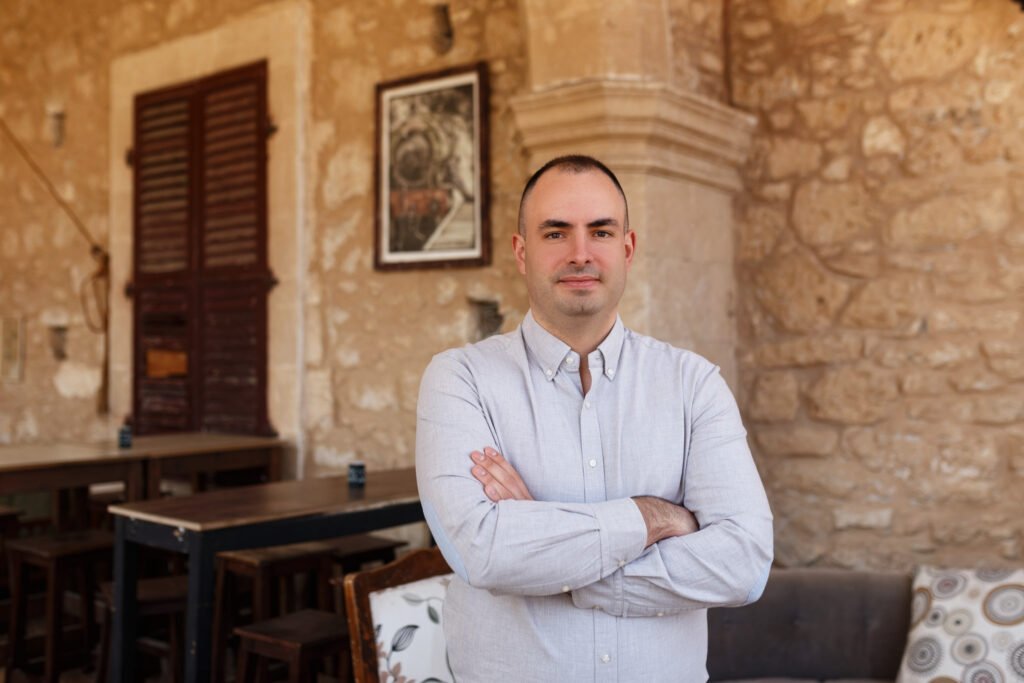Hypnotherapy for phobias
Discover how hypnotherapy for phobias can help you overcome irrational fears and regain control of your life. Explore the power of the mind in conquering your phobic triggers

Overcome your phobia with online hypnotherapy
Is your phobia holding you back from fully embracing life? You’re not alone. Phobias can be draining, leading to worry, anxiety, and dread. Many individuals recognize that their fear is irrational but struggle to regain control. The perceived danger feels overwhelming, and they seek assistance in shifting their mindset. Hypnotherapy for phobias could offer the solution you’ve been seeking.
Are you grappling with a phobia?
- Do you experience intense fear and panic?
- Feel out of control and helpless?
- Are you self-conscious and embarrassed by your fear?
- Do you struggle with difficulty breathing, trembling, or shaking?
- Do you feel pain or tightness in your chest?
- Experience dizziness, nausea, or lightheadedness?
Whether your phobia stems from specific situations, objects, animals, or people, I can help you release unhelpful subconscious beliefs that fuel your irrational fear. Through a combination of hypnotherapy, Neuro Linguistic Programming (NLP), and coaching techniques, phobia hypnotherapy aims to uncover the root cause of your phobia, enabling you to feel safe, calm, and in control.
I will impart powerful techniques that alter your perspective and empower you to maintain control in any situation. This approach typically yields positive results in just a few sessions, offering a brief yet effective therapy option for overcoming phobias.
Discover how hypnotherapy and NLP can assist you:
- Uncover the underlying cause of your phobia.
- Transform your thoughts and emotions.
- Acquire potent NLP techniques to alter your responses in the future.
- Embrace a more confident, happier life.

Julian Carbajo
Are you ready to embark on a journey of self-discovery and transformation? My name is Julian, and I am not just a clinical hypnotherapist and life coach – I am your dedicated partner in achieving your goals and unlocking your fullest potential.
Ready to take the first step towards a happier, more fulfilling life? Contact me today to schedule a consultation and discover how tailored hypnotherapy and coaching solutions can unlock positive change in your life. Your journey towards personal growth and transformation begins with a simple message – reach out to me, and let’s embark on this empowering journey together.
Phobias, intense and irrational fears of specific objects or situations, can significantly disrupt one’s life and hinder personal growth. Phobias are characterized by an irrational and overwhelming fear response to specific triggers, such as spiders, heights, crowded places or flying. People with phobias often experience extreme anxiety and distress when they are exposed to their feared object or situation, even if they know that it is not actually dangerous. While various treatments exist, one alternative and increasingly popular approach is hypnotherapy for phobias.
We’ll explore the power of hypnotherapy as a treatment modality for phobias, how it works in the context of phobia treatment, its potential benefits, and how it can empower individuals to conquer their fears and lead a fuller life.Hypnotherapy seeks to establish a connection with the unconscious mind and modify your emotional responses and behaviours associated with your phobia.
Understanding hypnotherapy for phobias
A Unique approach
Hypnotherapy, or hypnosis, is a therapeutic technique that involves inducing a relaxed and focused state of consciousness, allowing individuals to access their subconscious mind. During hypnotherapy sessions, a trained hypnotherapist guides individuals through various relaxation techniques and uses verbal suggestions to address the root causes of phobias.
Reprogramming the unconscious Mind
The unconscious mind plays a crucial role in shaping our responses and behaviours. Hypnotherapy aims to reprogram negative thought patterns associated with phobias by accessing the subconscious realm. In this altered state, the hypnotherapist helps individuals identify and challenge irrational beliefs and fears, replacing them with more positive and adaptive responses.
Creating New Associations
Hypnotherapy for phobias often involves visualization techniques to create new associations and perceptions of the feared stimulus. By visualizing positive experiences or neutralizing the negative emotions attached to the phobia, individuals can gradually rewire their subconscious responses. This process helps build resilience and reduces the intensity of fear when encountering the phobic trigger in real life.
Addressing Underlying Traumas
Phobias can sometimes be rooted in traumatic experiences from the past. Hypnotherapy provides a safe space to explore and process these underlying traumas. By delving into the unconscious mind, hypnotherapy allows individuals to confront and resolve deep-seated emotional wounds associated with their phobias, freeing them from the grip of fear.
Complementary Approach
Hypnotherapy is often used as a complementary approach alongside other evidence-based therapies for phobias. It can augment traditional therapies such as cognitive-behavioral therapy (CBT), exposure therapy, or medication. When integrated into a comprehensive treatment plan, hypnotherapy can enhance the efficacy of these therapies, offering a holistic approach to phobia management.
The Mechanics of Hypnotherapy for Phobias

1. Probing the Subconscious: The initial step in hypnotherapy involves accessing the unconscious mind, where deep-seated beliefs and fears are often buried. This exploration aims to unveil the origins of the phobia, which may be rooted in past experiences or traumas.
2. Restructuring Thought Patterns: Hypnotherapists collaborate with individuals to reframe their thoughts and beliefs regarding the phobia. This process is fundamental in changing the emotional response from one of fear to a more neutral or positive reaction.
3. Gradual Desensitization: Hypnotherapy gradually desensitizes individuals to the feared object or situation, thereby reducing the associated anxiety and stress. This desensitization process plays a crucial role in alleviating the symptoms of the phobia.
Is hypnotherapy for overcoming phobias effective?
Research has shown that hypnotherapy can be an effective treatment for phobias although some more research is needed to fully understand the effectiveness of hypnotherapy for phobias . Research and anecdotal evidence suggest that hypnosis can be beneficial in addressing the underlying causes of phobias and helping individuals overcome their fears.
According to Psychology Today, studies indicate that hypnotherapy is most effective when combined with other treatment modalities, such as cognitive-behavioral therapy (CBT). The use of hypnosis can help individuals reframe and desensitize their response to the feared stimulus, allowing them to function more freely and reduce anxiety.
A study found that people who used hypnotherapy to treat their phobias were significantly more likely to improve than those who did not use hypnotherapy. Another study found that hypnotherapy helped people with phobias to maintain their improvement over time.
Anecdotal evidence also suggests that hypnotherapy has been successful in treating specific phobias, such as driving phobias or fear of flying. Personal experiences shared by individuals who have undergone hypnotherapy for phobias often highlight the positive impact it has had on their lives.
While hypnotherapy can be a valuable addition to a comprehensive treatment plan for phobia management, it is often used as a complementary approach alongside other evidence-based therapies.
Components of Hypnotherapy for phobias

1. Assessment: A certified hypnotherapist conducts an initial assessment to understand the client’s specific phobia, its triggers, and the extent of its impact on their life.
2. Induction: During a hypnotherapy session, the client is guided into a state of deep relaxation, often referred to as a trance. Relaxation techniques, such as deep breathing and guided imagery, are commonly used to induce this state.
3. Suggestion: While in this relaxed state, the hypnotherapist provides positive suggestions and affirmations tailored to address the client’s phobia. These suggestions may include visualizing a calm and controlled response when encountering the phobic trigger.
4. Exposure and Desensitization: Hypnotherapy sessions may involve controlled exposure to the phobic stimulus within the relaxed state. This exposure helps the client confront their fear and learn to react differently, often with reduced anxiety.
5. Behavioural Modification: Hypnotherapy aims to modify the negative thought patterns and behaviors associated with the phobia. It can help clients reframe their beliefs, reduce panic responses, and improve their overall coping strategies.
6. Reinforcement: Positive suggestions and affirmations are consistently reinforced in subsequent sessions, strengthening the client’s ability to confront and manage their phobia.
What to expect during a hypnotherapy session?
It is crucial to seek out a qualified and certified hypnotherapist with experience in treating phobias. A professional hypnotherapist will conduct a thorough assessment, develop a tailored treatment plan, and guide individuals through the hypnotherapy process safely and ethically. They can provide ongoing support to address the phobia’s underlying causes and monitor progress throughout the therapy journey.
During your first hypnotherapy session, you will have a consultation with your hypnotherapist to discuss your goals for therapy. Your hypnotherapist will also explain the process of hypnosis and answer any questions you may have.
Once you are ready to begin, your hypnotherapist will guide you into a deep state of relaxation. Once you are in a relaxed state, your hypnotherapist will use positive suggestion to help you to change your thoughts and behaviours related to your phobia. These hypnotherapy sessions might take 30-60 mins.
Benefits of Hypnotherapy for phobias

1. Overcoming irrational fears: Hypnotherapy can help individuals address the root causes of their phobias and develop new associations, allowing them to overcome their fears.
2. Increased relaxation: Hypnosis induces a state of deep relaxation, which can help individuals stay calm when confronted with their phobic triggers.
3. Personal empowerment: Hypnotherapy empowers individuals to take control of their fears and develop a sense of mastery over their phobic triggers.
4. Complementary approach: Hypnotherapy can be used alongside other evidence-based therapies, such as cognitive-behavioral therapy, to enhance the effectiveness of treatment.
5. Tailored treatment: Hypnotherapy sessions are customized to the individual, addressing their specific phobia and unique needs.
6. Positive mindset: Hypnosis helps reframe negative thought patterns and create a more positive mindset, promoting resilience and confidence in facing phobic triggers.
7. Fewer sessions: Hypnotherapy for phobias can often achieve significant results in a relatively short period, making it a time-efficient treatment option.
FAQs about hypnotherapy for phobias?
Can Hypnotherapy Help With Specific Phobias Like Fear Of Flying Or Heights?
Is Hypnotherapy Suitable For Children With Phobias?
How Do I Know When It's Time To Seek Professional Help For My Phobia?
Is It Possible To Undergo Hypnotherapy For Phobias Remotely?
How Does Hypnotherapy Differ From Other Approaches In Treating Phobias?
Conclusion
Phobias can be paralyzing and limit one’s life experiences, but hypnotherapy offers a powerful tool for conquering these fears. By tapping into the power of the mind and addressing the underlying causes of phobias, individuals can learn to confront and manage their fears effectively. If you or someone you know is struggling with a phobia, consider exploring hypnotherapy.
it is important to remember that hypnotherapy should be pursued under the guidance of a qualified and certified hypnotherapist and as part of a comprehensive treatment plan. The hypnotherapist can provide valuable insights and guidance on how to unleash the hidden potential within and lead a life free from the constraints of irrational fears.
